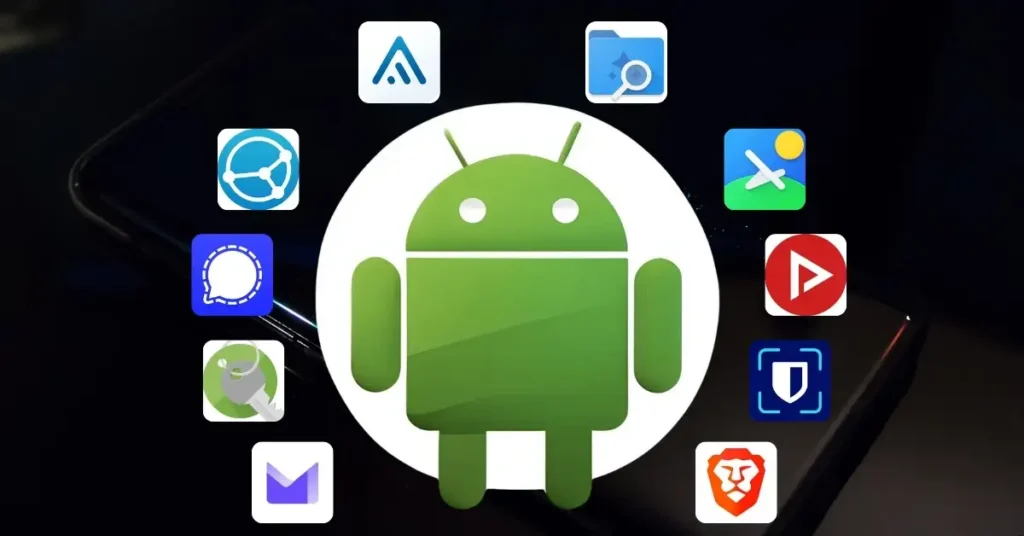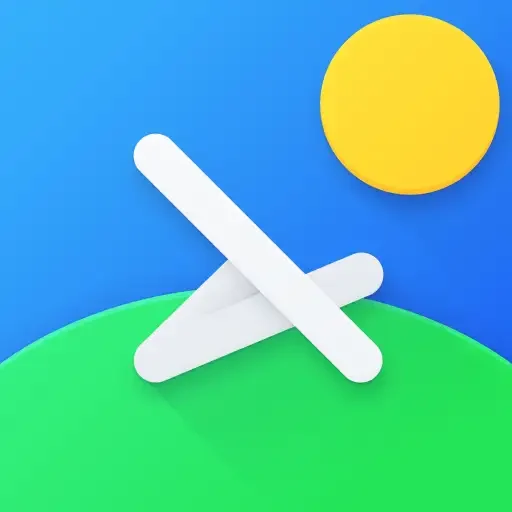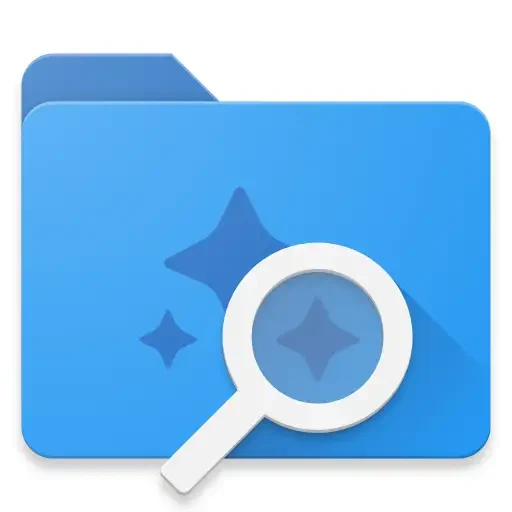Hi! If you’re reading this, you’re likely someone who values keeping your Android device private. And let’s be real – in 2025, with data tracking everywhere, that’s a smart move. Big tech companies are constantly collecting your info, from what you search to who you text. That’s why open source Android apps are a game-changer. These apps are free, transparent, and often built with privacy in mind. Their code is open for anyone to check, so you know there’s no sneaky stuff going on. I’ve handpicked 10 open source Android apps that I think you should install today to lock down your privacy and take control of your digital life. Let’s dive in.

Why Open Source Android Apps Are a Must for Privacy
Before we get to the list, let’s talk about why open source Android apps are so important. When an app is open source, its code is like an open book – anyone can read it, audit it, and make sure it’s not hiding trackers or backdoors. Compare that to proprietary apps like WhatsApp or Gmail, which can collect tons of data behind closed doors. Open source apps are often built by developers who value freedom and privacy, just like you. Plus, they’re usually free from ads and bloated features, making them lean and mean privacy machines. Ready to see what’s out there? Here’s my top 10.
1. Signal Private Messenger: Your Go-To for Secure Chats

If you’re serious about privacy, Signal Private Messenger is probably already on your radar – and if it’s not, it should be. This app is the gold standard for secure communication. It uses end-to-end encryption, so only you and the person you’re talking to can see your messages. Not even Signal’s developers can peek. I use Signal for all my sensitive chats, like when I’m discussing work projects or personal stuff I don’t want floating around. It’s got everything you need: text, voice calls, video calls, and file sharing, all in a slick, easy-to-use package. And since it’s open source, you can trust there’s no funny business in the code.
- Why it’s awesome: End-to-end encryption, no data collection, open source.
- Example: I once sent a confidential document via Signal’s file-sharing feature, knowing it was safe from prying eyes.
- Comparison: Unlike WhatsApp, which is owned by Meta and collects user data, Signal keeps your info private.
Get it: Signal
2. Proton Mail: Email That Respects Your Privacy

Still using Gmail? It’s time to switch to Proton Mail. This open source email app is like a fortress for your inbox. Based in Switzerland (hello, strong privacy laws), Proton Mail encrypts your emails end-to-end, so no one, not even Proton, can read them. I’ve been using it for years for anything that needs to stay confidential, like contracts or personal correspondence. The interface is clean, it supports attachments, and it even comes with a calendar and cloud storage that are just as privacy-focused. Free for basic use, with premium plans starting at $4.99/month for extra features.
- Why it’s awesome: End-to-end encryption, no data mining, open source.
- Example: I set up Proton Mail to manage my freelance work emails, and it’s been a game-changer for keeping things secure.
- Comparison: Gmail scans your emails for ads; Proton Mail doesn’t.
Get it: Proton Mail
3. Brave Browser: Surf the Web Without Trackers

Let’s talk browsing. Most people use Chrome, but it’s a data vacuum for Google. Brave Browser is the open source alternative that puts privacy first. It blocks ads and trackers by default, so websites load faster and you don’t get creepy ads following you around. Brave also has its own search engine that doesn’t track your queries. I switched to Brave on my phone, and the internet feels so much cleaner. Since it’s built on Chromium, it works with all your favourite sites, but without the privacy invasion.
- Why it’s awesome: Ad and tracker blocking, private search, open source.
- Example: I noticed pages loading faster on Brave, especially on news sites heavy with ads.
- Comparison: Firefox is another great open source browser, but Brave’s default ad-blocking gives it an edge for beginners.
Get it: Brave
4. Aegis Authenticator: Lock Down Your 2FA

Two-factor authentication (2FA) is a must for security, but not all authenticator apps are created equal. Aegis Authenticator is an open source gem that lets you manage your 2FA tokens securely. You can encrypt your vault with a password, and it supports importing tokens from apps like Google Authenticator. I use Aegis for all my 2FA needs because I can check its code and know it’s not tracking me. The interface is straightforward, and it’s completely free.
- Why it’s awesome: Open source, vault encryption, no tracking.
- Example: I imported my 2FA tokens from another app to Aegis in minutes, and it’s been rock-solid since.
- Comparison: Unlike Google Authenticator, Aegis is open source and offers more export options.
Get it: Aegis on GitHub
5. Bitwarden: Your Passwords, Secured

Passwords are the keys to your digital life, and Bitwarden is the open source password manager you can trust to keep them safe. It stores your passwords with end-to-end encryption, so even Bitwarden can’t access them. I use it to generate strong, unique passwords for every site and sync them across my devices. The free version is plenty for most users, but premium features like advanced 2FA cost $10/year. It’s a small price for peace of mind.
- Why it’s awesome: End-to-end encryption, open source, free tier.
- Example: Bitwarden saved me when I forgot a complex password for a rarely used account.
- Comparison: LastPass has had security issues; Bitwarden’s open source nature makes it more trustworthy.
Get it: Bitwarden
6. Syncthing: Sync Files Privately

Cloud services like Dropbox are convenient, but they often track your data. Syncthing is an open source alternative that syncs files directly between your devices, no third-party server involved. It’s like your own private cloud. I use Syncthing to keep my photos and documents in sync between my phone and laptop, knowing no one else can access them. Setup takes a bit of effort, but it’s worth it for the privacy.
- Why it’s awesome: Peer-to-peer syncing, no central server, open source.
- Example: I synced a folder of work files across devices without worrying about data leaks.
- Comparison: Unlike Google Drive, Syncthing doesn’t store your files on someone else’s server.
Get it: Syncthing
7. OpenKeychain: Encryption for the Pros

If you’re into serious security, OpenKeychain is your open source tool for PGP encryption. It lets you encrypt and sign emails or files, ensuring only the intended recipient can access them. It’s a bit technical, but perfect for sensitive communications. I use it when sending encrypted emails to clients who value privacy. It’s free and integrates with apps like K-9 Mail.
- Why it’s awesome: PGP encryption, open source, no data collection.
- Example: I sent a signed contract via email using OpenKeychain, and it felt like Fort Knox.
- Comparison: Proprietary encryption tools often lack transparency; OpenKeychain’s code is public.
Get it: OpenKeychain on F-Droid
8. Lawnchair Launcher: A Clean, Private Home Screen

Your home screen is your Android’s front door, so why not make it privacy-friendly? Lawnchair Launcher is an open source launcher that lets you customize your app drawer and icons without trackers or bloatware. I set mine up to hide unused apps and keep my essentials front and centre. It’s fast, lightweight, and completely free.
- Why it’s awesome: No tracking, open source, highly customizable.
- Example: I tweaked Lawnchair to match my phone’s dark theme, and it feels so personal.
- Comparison: Stock launchers often include pre-installed bloat; Lawnchair is clean and user-driven.
Get it: Lawnchair
9. Amaze File Manager: Organize Without Ads

File managers can be bloated with ads, but Amaze File Manager is an open source breath of fresh air. It lets you manage files easily, supports root access if you’re advanced, and has no trackers. I use it to organize downloads and move files around without interruptions. It’s free and straightforward.
- Why it’s awesome: No ads, no trackers, open source.
- Example: I cleaned up my cluttered downloads folder with Amaze in no time.
- Comparison: Many default file managers include ads; Amaze is clean and efficient.
Get it: Amaze on F-Droid
10. NewPipe: YouTube, But Private

Love YouTube but hate the ads and tracking? NewPipe is an open source YouTube client that lets you watch videos without signing in, without ads, and even download them for offline use. I use NewPipe to catch up on tech tutorials without interruptions. It’s free and available on F-Droid.
- Why it’s awesome: No login, no ads, open source.
- Example: I downloaded a cooking video with NewPipe to watch offline on a flight.
- Comparison: YouTube’s official app requires a login and tracks you; NewPipe doesn’t.
Get it: NewPipe on F-Droid
FAQs: Your Questions About Open Source Android Apps
What does open source mean?
Open source means the app’s code is public, so anyone can check it for security or privacy issues. This transparency makes it harder for developers to hide trackers or malicious code, which is why privacy-focused users love them.
Are these apps completely free?
Most are free with no in-app purchases. Some, like Proton Mail and Bitwarden, offer premium features for a small fee ($4.99/month for Proton Mail, $10/year for Bitwarden), but their core functions are free.
How do I install these apps if they’re not on the Play Store?
Many are on F-Droid, an open source app store. Download F-Droid from its website, then find these apps there. Some, like Signal and Proton Mail, are also on the Play Store.
Is using open source apps enough for privacy?
They’re a great start, but privacy is a bigger picture. Limit app permissions, use a VPN for public Wi-Fi, and be cautious about sharing personal info online for maximum protection.
Can I trust these apps completely?
Open source apps are more trustworthy because their code is auditable, but no app is perfect. Keep them updated and stay informed about security news to stay safe.
Wrapping It Up: Your Privacy, Your Power
There you go – 10 open source Android apps that can help you reclaim your privacy. These tools are like a shield against data-hungry corporations, and they’re built by people who care about your freedom. Install a few, play around, and see how much cleaner your digital life feels. Your privacy is worth it.
For more privacy tips, check out daytalk.in for related content.
Comparison Table: Open Source vs. Proprietary Apps
| Feature | Open Source Apps (e.g., Signal, Proton Mail) | Proprietary Apps (e.g., WhatsApp, Gmail) |
|---|---|---|
| Code Transparency | Publicly auditable, no hidden trackers | Closed source, potential for hidden tracking |
| Data Collection | Minimal or none | Often extensive for ads or analytics |
| Privacy Focus | Built with privacy in mind | Privacy often secondary to profit |
| Cost | Usually free, optional paid features | Free, but may push premium subscriptions |
| Community Support | Driven by user feedback and volunteers | Privacy is often secondary to profit |

